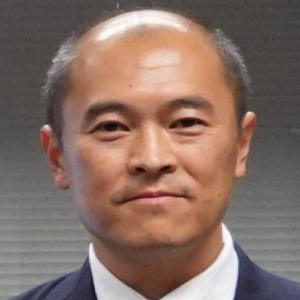Access
Gallery Center Building F2, 6-3-2 Ginza, Chuo-ku, Tokyo, Japon 104-0061
TEL: 03-6228-5361
FAX: 03-6228-5365
Gallery Center Building F2, 6-3-2 Ginza, Chuo-ku, Tokyo, Japon 104-0061
TEL: 03-6228-5361
FAX: 03-6228-5365
Chief Professor, Department of Gastroenterology and Hepatology, Vice Dean, Kumamoto University.
Deputy Hospital Director and Director of Liver Disease Center, Kumamoto University Hospital.
Prof. Yasuhito Tanaka has been working as a Gastroenterologist (Hepatologist) since 1991 and treated many patients with chronic viral hepatitis. Dr. Tanaka obtained his PhD. from Nagoya City University, Nagoya, Japan. In 1999, he joined the U.S. National Institutes of Health as a Visiting Fellowship. After serving as Assistant professor (2001-2002), Lecturer (2002-2006), and Associate professor (2006-2009) at the Department of Clinical Molecular Informative Medicine, Nagoya City University Graduate School of Medical Sciences, he became Professor and Director, Department of Virology & Liver unit, Nagoya City University Graduate School of Medical Sciences (2006-2020). Since 2020, Dr. Tanaka has been serving as Professor of the Department of Gastroenterology and Hepatology and Vice Dean Faculty of Life Science at Kumamoto University, and Deputy Hospital Director and Director of Liver Center, and Director of Endoscopy Center at Kumamoto University Hospital. He has been working on molecular evolutionary analyses of HBV and HCV using human samples, and also leading National Projects about GWAS and drug screening for developing HBV therapeutics. His clinical studies contributed to making Japanese guideline to prevent HBV reactivation by HBV-DNA monitoring.

Dr. YusuShimakawake is a senior epidemiologist leading the Viral Hepatitis Elimination Group at the Emerging Disease Epidemiology Unit, Institut Pasteur in Paris. He holds a medical degree from Jikei University in Japan, a PhD in epidemiology from the London School of Hygiene and Tropical Medicine, and an HDR (Accreditation to supervise research) from Paris Cité University. Dr. Shimakawa has extensive experience working in resource-limited countries, both as a clinician with Médecins Sans Frontières (MSF) in Thailand and as an epidemiologist with the MRC Unit in The Gambia. Currently, he leads research projects in Africa, including the NéoVac project, which assesses the impact of integrating the birth dose hepatitis B vaccine into Burkina Faso’s routine infant immunization program, and the PROTECT-B project, which evaluates a rapid test to identify people eligible for hepatitis B treatment. He has been commissioned by the World Health Organization (WHO) to conduct systematic reviews to inform several clinical guidelines.
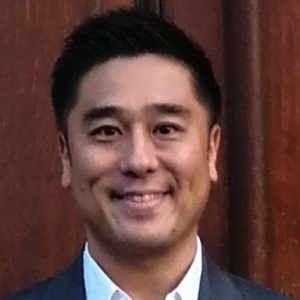
Prof. Shahragim Tajbakhsh (Stem Cells & Development Lab) obtained a Ph.D. in Biology, Carleton U., Canada on molecular biology of viruses. Following postdoctoral research at Institut Pasteur he established an independent group in 2001 called “Stem Cells & Development” to study how stem cells establish and regenerate organs and tissues, with a focus on skeletal muscle. The aim of his laboratory is to investigate stem cell properties during development and postnatally to understand how skeletal muscle is established, and how it regenerates during disease, and after injury. Areas of focus include quiescence, niche, self-renewal, symmetric/asymmetric cell divisions, regeneration and ageing. His lab used mouse genetics to show that muscle stem cell populations are remarkably diverse in function leading to the hypothesis that the modular design in the embryo might in part be responsible for the mosaic response in pathology of muscles in myopathies.
ST is an EMBO member, former Head of Dept. of Developmental & Stem Cell Biology, and co-Director of “Laboratory of Excellence” Consortium, REVIVE (28 labs working on stem cells; 2011-2024). He is member of different scientific councils (e.g., French myopathy organisation, vice-President), several SABs and presides on editorial boards of 4 scientific journals. He has participated in several EU consortia (FP6, EuroStemCell; FP7, EuroSyStem, Optistem, NotchIT) and received several awards including Chair of Excellence Louis Pasteur (Institut Pasteur, 2017) and the French Academy of Sciences. He received numerous competitive grants (e.g., EU, ANR, FRM, ARC, 2-time awardee of ERC Advanced Grant). In 2010, 2015, and 2020 the national HCERES ranked the ST laboratory as A+, outstanding.
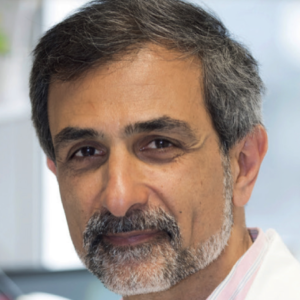
Senior Advisor to the President on Academic Affairs, Kyoto University
Dean, Kyoto-McGill International Collaborative School of Genomic Medicine, Kyoto University Graduate School of Medicine
Scientific Coordinator, Pasteur-Kyoto University International Joint Research Unit for Integrative Vaccinomics
Professor Matsuda obtained his Ph.D. from Kyoto University Graduate School of Medicine in 1990 on his research of the organization of the human immunoglobulin heavy chain variable region (VH) gene locus under Professor Tasuku Honjo. He worked as an assistant professor at Kyoto University until 1998. In 1998, Dr. Matsuda joined Centre National de Genotypage in Evry, France, as the head of gene identification. In 2003, he obtained a double appointment as a Professor at Kyoto University Graduate School of Medicine. From 2007 to 2010, he served as the Directeur de Recherche of INSERM (U. 852), and since 2008 has been the Center for Genomic Medicine Director. He has consistently devoted himself to researching human disease genomics using a genome-wide approach through various positions he has engaged. Since 2017, he has acted as the principal investigator of the Nationwide Rare Disease Platform program financed by the Japan Agency for Medical Research and Development (AMED). He has experience working in France for more than ten years with international collaborators and promotes international collaborations with France, Canada, the U.K., and Asian countries.
He has been the Scientific Coordinator of Institut Pasteur-Kyoto University International Joint Research Unit for Integrative Vaccinomics since November 2016. He also has been the Representative Director and Executive Director, Fondation Pasteur Japon since January 2023.
In September 2020, he was elevated to Knight of the National Order of Merit (Chevalier de L’Ordre National de Mérite) by the President of the Republic of France for his long-standing contribution to Franco-Japanese scientific cooperation, particularly in the field of genomic medicine.
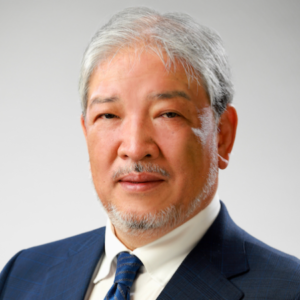
Dr. Richard Paul received his Batchelor’s degree in Zoology from Oxford University and then a Masters degree in Medical, Veterinary and Agricultural Entomology at Imperial College, London before completing a PhD in the Molecular Epidemiology of Plasmodium falciparum malaria at Oxford University. Following a post-doc at Institut Pasteur, he was recruited as a permanent staff scientist. He was expatriated to Pasteur Dakar to lead an epidemiological study of the human reservoir of infection with malaria parasites and then led a project on the Public Health assessment of a hydroelectric dam in Laos. Since 2010 he has focused on urban vector-borne diseases, namely dengue, and the socio-economic, demographic and environmental factors associated with risk to enable targeted intervention. Concomitantly he has been trialing novel mosquito control methods for use in the urban setting. He has taught a course in Kyoto University on Public Health since 2015. Since 2020 he has expanded his research domain into the environmental impact on tick species distribution and the epidemiology of tick-borne pathogens.

Prof. Ken J. Ishii, M.D., Ph.D., currently Director for Int. Vaccine Design Center, The Institute of Medical Science, the University of Tokyo, has 27 years of experience in Vaccine R&D since 1998 including 7 years as a IND reviewer at US Food and Drug Administration (FDA), 15 years as a basic immunologist at Osaka University, 9 years as a vaccine adjuvant expert at National Institute (NIBIOHN), 2 years as managing director at AMED (medical funding agency), as well as Advisor for PMDA (regulatory agency), GHIT (global fund) and CEPI. He has contributed to basic research on infectious diseases and immunology, resulted in numerous books and over 250 periodical publications and 35,000 citations with H-index 84 as well as over 50 patents related to vaccine and adjuvant, and to regulation of many vaccines and guidelines for vaccine preclinical and clinical trials in Japan and US.
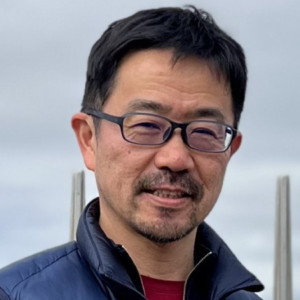
Prof. James Di Santo received MD and PhD degrees from Cornell Medical College and the Sloan Kettering Institute in New York and completed postdoctoral training with Pr Alain Fischer (Necker Hospital, Paris, France) and Pr Klaus Rajewsky (Institute for Genetics, Cologne, Germany). In 1999, he created his own lab at the Institut Pasteur in Paris where he currently holds the position of Professor in the Immunology Department and Research Director within the French Medical Research Institute (Inserm). Pr. Di Santo’s main scientific interests are in the areas of lymphocyte biology, cytokines, transcription factors and signaling pathways in the development and function of both adaptive (T and B cell) and innate (ILC, NK cells) lymphocytes in mice and man. His laboratory has developed a series of human immune system mouse models that allow for an in-depth analysis of human immunity in a pre-clinical setting, with applications for treatment of human infectious diseases. More recently, he has developed an integrated systems immunology approach using nasal swab samples to assess human mucosal immunity in healthy individuals and in patients suffering from respiratory diseases that will be applied in the context of the Pasteur International Research Unit ‘Mucosal Immunomics’ with Pr. Ken Ishii (International Vaccine Design Center, IMSUT).
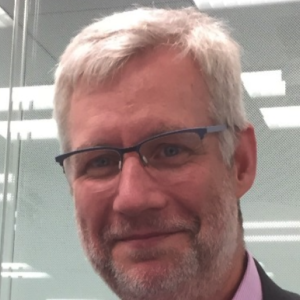
RIKEN Center for Integrative Medical Sciences (RIKEN IMS) is one of the leading research institutes not only domestically but also internationally, dealing with human health and diseases by using multidisciplinary approaches of genetics, molecular biology, biochemistry and histopathology. The Institut Pasteur of New Caledonia (IPNC) is a research institute operated with support from the New Caledonia government and is one of the branches of the Institute Pasteur (IP), headquartered in Paris, France. RIKEN and the IP concluded a comprehensive agreement in January 1984. Although there are many joint research projects between the two institutes until now, it has mostly been limited to individual researchers. To further facilitate our international collaborations, RIKEN and IPNC have already started holding discussions and workshops between institutes using RIKEN competitive international collaboration fund.
In recent years, the increase in obesity and diabetes has become a serious issue worldwide, including in New Caledonia. In particular, nearly 40% of children under the age of 12 in New Caledonia tend to be obese, and there are more than 14,000 people with type 2 diabetes. Therefore, the New Caledonia government is currently leading research to prevent the diseases, obesity and diabetes. Recently, it has been shown that specific microbes are involved in the induction and regulation of obesity/diabetes. In fact, our group in RIKEN IMS has recently shown that Fujimonas intestine, a one of commensal bacteria colonizing in the gut, exacerbate obesity). In addition, as there is a large difference in the prevalence of obesity among indigenous Polynesians, Melanesians, and immigrant Europeans, it has been implicated that genetic predispositions are involved in susceptibility to obesity and diabetes. Therefore, the goal of our collaboration is to determine how obesity/diabetes are regulated in New Caledonia by applying microbiome analysis as well as genetic approaches.
Under the Advanced International Collaborative Research Program – Adopting Sustainable Partnerships for Innovative Research Ecosystem (ASPIRE) entitled “The pandemic 5W1H investigation” (PI: Dr Kei Sato, the University of Tokyo), that is funded by Japan Agency of Medical Research and Development (AMED) since 2023 until 2029 as a matching fund to the Centers for Research in Emerging Infectious Diseases entitled “Pasteur International Center for Research on Emerging Infectious Diseases (PICREID)” by NIAID, we have been collaborating in the field of emerging arthropod-borne viral diseases, such as Crimean-Congo hemorrhagic fever and Rift valley fever in Asia and Africa. Collaborative projects include technology and material transfer, training, and student exchange.
“Project for Malaria and Neglected Parasitic Diseases Control and Elimination using Advanced Research Technique, Communication Tools and Eco-Health Education” was initiated in April 2023 by researchers in Japan and Lao People’s Democratic Republic (Lao PDR) after signing the memorandum of understanding between Institut Pasteur du Laos (IPL) and National Center for Global Health and Medicine (NCGM), Japan in March 2023. This is a five-year project under the scheme of Science and Technology Research Partnership for Sustainable Development (SATREPS) granted by the Japan Agency for Medical Research and Development (AMED) and the Japan International Cooperation Agency (JICA). Malaria, schistosomiasis and opisthorchiasis have been a serious public health issues in Lao PDR. The project aims to eliminate malaria and schistosomiasis mekongi and to control opisthorchiasis in Lao PDR. To accelerate malaria elimination, a high-sensitive DNA diagnostic method, i.e., a loop-mediated isothermal amplification (LAMP) for malaria will be installed at 25 healthcare facilities in the malaria endemic areas to improve a capacity for detecting a low parasite density infection that cannot be detected by the standard diagnostic methods. To accelerate schistosomiasis mekongi elimination, an environmental DNA (eDNA) approach will be used to provide insight into the real endemicity of the parasites and their intermediate host snails in the endemic area. In the eDNA approach, water samples from the Mekong River will be analyzed for detecting DNA of Schistosoma mekongi, and the host snail by PCR and LAMP methods. For opisthorchiasis control, a pulsed-power technology will be utilized for killing a larva of Opisthorchis viverrini in freshwater fish which is a source of infection to human. A severe chronic infection of O. viverrini may cause bile duct cancer. In addition, special food will be developed to inhibit growth of larval stages of S. mekongi and O. viverrini in their host snails. Moreover, eco-health education will be implemented in the target villages to prevent those parasitic disease infections.
Precision Immune Regulation RIKEN ECL Research Unit, RIKEN Center for Integrative Medical Sciences
The aim of our study is the regulation of responses in infectious and inflammatory diseases from an immunological point of view at the ECL Research Unit for Precision Immune Regulation at the RIKEN Center for Integrative Medical Sciences. After graduation, I immediately started my career as the postdoctoral fellow (Prof. James Di Santo) at the Institut Pasteur in France with the support of a French government scholarship. In 2008, I identified and reported a novel cell subset, currently referred to as group 3 innate lymphoid cells (ILC3). I became a Chargé de recherche at the Institut Pasteur in 2011, but then moved back to Japan and joined RIKEN. After returning to Japan, I have continued to collaborate with Dr. James Di Santo, and the Institut Pasteur is still the closest to me among the many research institutes in the world. At present, we have also started joint research with the Institut Pasteur of New Caledonia (IPNC). Starting with this joint research, we aim to further develop our research by integrating new perspectives and technologies through the worldwide network of Pasteur Institutes in the future.
【Comment on the collaboration】
In this joint research project, RIKEN’s expertise in microbiome and metabolite analysis and the Institut Pasteur’s strength in genome-wide association analysis will be integrated to identify important factors involved in diabetes and obesity in New Caledonia, which will provide an opportunity to propose new therapeutic strategies. If RIKEN and Institut Pasteur can strengthen their mutual international network and synergistically develop their scientific relationship, this will lead not only to scientific research but also to the development of researchers who will lead the research community in the future.

Dr. Keita Matsuno is a Veterinarian Virologist with the International Institute for Zoonosis Control, Hokkaido University. Keita holds a Bachelor of Veterinary Medicine and a PhD in Veterinary Medicine from Hokkaido University. He spent three years in the National Institute of Allergy and Infectious Diseases, the United States as a post-doctral fellow for tick-borne virus research and received training in BSL-4 laboratory. He was assigned to the current position in 2020 and started his role as a principal investigator. Keita has been assigned as a vice-director of One Health Research Center, Hokkaido University since 2023. His research interests primarily lie in understanding the emergences of tick-borne virus diseases.
<Comment on the collaboration>
We are delighted to strength our collaboration together with Institut Pasteur Japon. International networks of Hokkaido University and Institut Pasteur in emerging infectious disease research will be able to work synergistically for combating future pandemic.
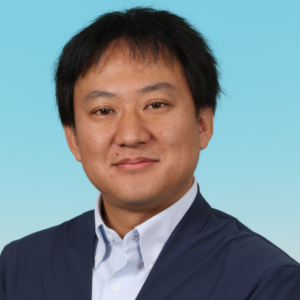
Chief, Section of Tropical Medicine,
Department of Tropical Medicine and Malaria
Research Institute, National Center for Global Health and Medicine (NCGM), Tokyo, Japan
Lab Head, Parasitology Laboratory
Institut Pasteur du Laos (IPL), Vientiane Capital, Lao PDR
Dr. Moritoshi Iwagami completed his studies at the Obihiro University of Agriculture and Veterinary Medicine, Japan (Master of Agriculture, 2000) and at the Graduate School, Kochi Medical School, Japan (Ph.D. (Medicine), 2004), during which time he conducted molecular phylogenetic analyses of Paragonimus and Schistosoma. Since then, he has been working at Research Institute, International Medical Center of Japan (IMCJ) (since 2010 at Research Institute, NCGM) on molecular genetic epidemiology of drug-resistant malaria and asymptomatic malaria infection in Asia. Since 2014, he had been an expert in the JICA/AMED SATREPS project (Principal Investigator: Dr. Shigeyuki Kano) at Institut Pasteur du Laos (IPL), Ministry of Health, which is one of the Overseas Clinical Research Stations of NCGM, working locally on parasitic diseases and training young Lao researchers. Since 2023, he has been the Principal Investigator of a new SATREPS project, which aims to eliminate malaria and schistosomiasis mekongi and to control opisthorchiasis. Since July 2017, NCGM and Institut Pasteur have established a joint research structure through an MoU and have achieved significant results in research on parasitic diseases, particularly malaria.
We aim to further collaborate with Institut Pasteur Japon (IPJ) in the future and contribute to enhancing the IPJ-NCGM-IPL network structure.
